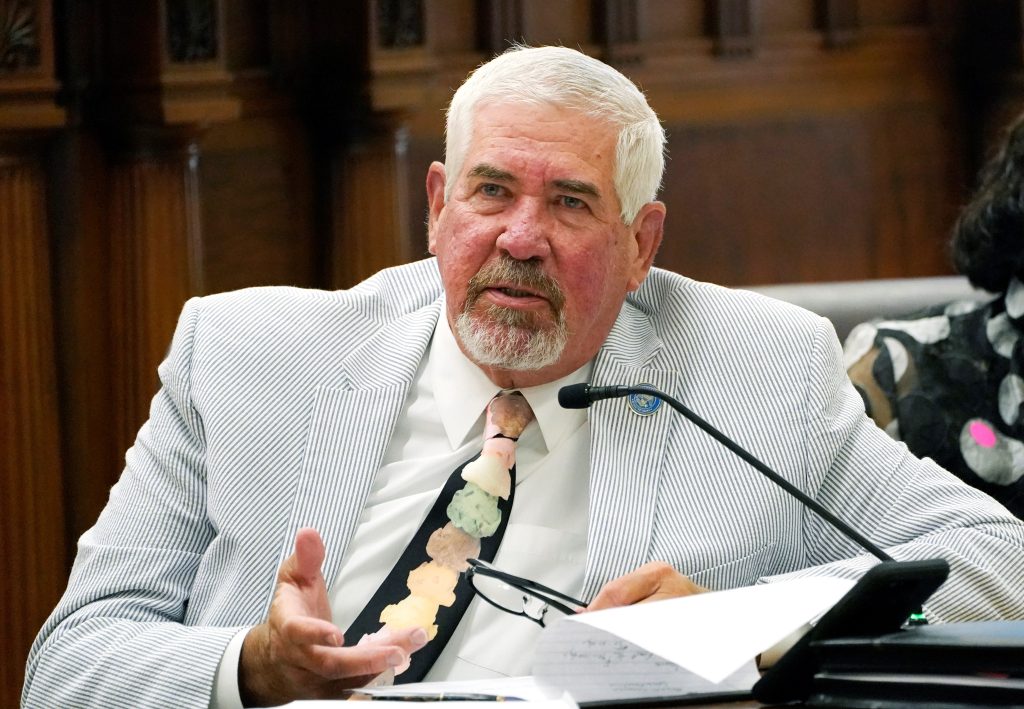Need assistance getting a cannabis business license? Schedule a Free Consultation
- Other states are taking similar steps as those being considered in Mississippi.
Mississippi lawmakers are considering a bill that could further restrict the types of hemp products retail stores are able to sell.
Currently, the state has few regulations regarding how much THC hemp-based products can contain. A bill making its way through the Legislature would provide guidelines for retailers and dispensaries for what is being referred to as “intoxicating hemp.”
CBD stores, and other retailers that sell these products, are different than licensed dispensaries in Mississippi. Dispensaries are authorized to sell medical cannabis that has been approved by the Mississippi State Department of Health.
Mississippi lawmakers first began passing legislation for residents to utilize components of THC and CBD in 2014 with Harper Grace’s Law. In 2018, the federal Farm Bill was passed which legalized industrial hemp growing across the nation. The Farm Bill then required states to create their own plan for licensing and regulating hemp, which is defined as having Delta-9 THC as the intoxicating ingredient.
CBD is often used to treat neurological disorders and those conditions that impact the nervous system. Its benefits include the treatment of managing epileptic seizures. Typically, CBD products do contain trace amounts of THC.
In 2020, Mississippi authorized hemp growth in the state under SB 2725, the Mississippi Hemp Cultivation Act. That law allows for residents to buy hemp-derived CBD oil and other CBD products from vape shops, wellness centers, CBD stores and other retailers.
However, according to lawmakers, there has been a hole in regulation of hemp-derived products being sold in these retail stores, something the bill proposed this session hopes to rectify.
State Representative Lee Yancey (R), the bill’s author, said the measure will divide hemp into two categories: Intoxicating hemp, which must be sold in a dispensary, and non-intoxicating hemp, which can still be sold in CBD retail stores.


(Photo by Jeremy Pittari | Magnolia Tribune)
The Senate strike-all amendment describes “intoxicating hemp” as, “Any finished product intended for human or animal consumption containing any hemp, including naturally occurring cannabinoids, compounds, extracts, isolates, or resins, and that contains greater than five milligrams of total THC per container; but does not exceed ten milligrams of total THC per serving and one hundred milligrams per container.”
State Senator Kevin Blackwell (R), chairman of the Senate Medicaid Committee and a key player in the establishment of the medical cannabis program working with Yancey, offered a new amendment of the bill which has been adopted by the Senate. Blackwell said regulating the hemp products is a necessary step for the state, telling lawmakers the changes were not an expansion of the current medical cannabis program.
“We restrict our medical cannabis program significantly, but if you want to call this our ‘rec program’ you can pretty much buy anything you want,” said Blackwell.


Senator Blackwell said poison control has seen a significant rise in incidents over the last several years involving synthetic products related to intoxicating hemp.
The state currently requires that CBD stores verify that a customer is 18 years of age or older before purchasing these products. The new bill would up the age requirement to 21 years old.
Retailers would still be allowed to purchase and sell hemp products as long as those products are certified according to state law, which is done by the Department of Agriculture and Commerce as long as they do not exceed the new parameters of non-intoxicating hemp and intoxicating hemp.
The legislation specifies that products considered as intoxicating hemp may only be sold by persons or businesses that are licensed under the Mississippi Medical Cannabis Act. It also adds an additional 5 percent tax to the already required 7 percent sales tax required to be collected by retailers.
Dispensaries authorized by the Mississippi State Department of Health are subject to a lengthy application process and fees up to $40,000 for certification to sell marijuana products to individuals with an approved medical condition. Licensed retailers that sell hemp or CBD products, however, pay a $200 annual fee.
For a retailer that violates the provision of the proposed law, they could face fines of up to $5,000 and/or be imprisoned up to one year.
Rep. Yancey told Magnolia Tribune that he planned to invite conference on the bill after the changes made in the Senate were sent back to the House.
Other states are taking similar steps as those being considered in Mississippi.
In March, South Dakota moved to outlaw intoxicating hemp products to eliminate such products with synthetic compounds like Delta-8 THC. The new law prohibits any production or sale of “chemically modified or converted industrial hemp.” It does not include cannabinoids that are extracted naturally, non-psychoactive or topical creams. The South Dakota law defines “industrial hemp” as a product with a concentration of no more than 0.3 percent THC.
In Ohio, Governor Mike DeWine has urged the Legislature there to remove Delta-8 and Delta-9 THC products from gas stations, health food stores, and other retailers. He claims that the products were being sold to teenagers.
Illinois, Texas and other states are also considering action on intoxicating hemp products.
A March letter from 21 state attorneys general called on Congress to address such products in the upcoming Farm Bill. The letter was co-led by Arkansas Attorney General Tim Griffin and Indiana Attorney General Todd Rokita, who were joined by their peers from California, Colorado, Connecticut, D.C., Georgia, Hawaii, Iowa, Kansas, Maryland, Minnesota, Missouri, North Carolina, North Dakota, Oregon, Pennsylvania, South Dakota, Tennessee, Virginia and Washington, as reported by Cannabis Business Times.




